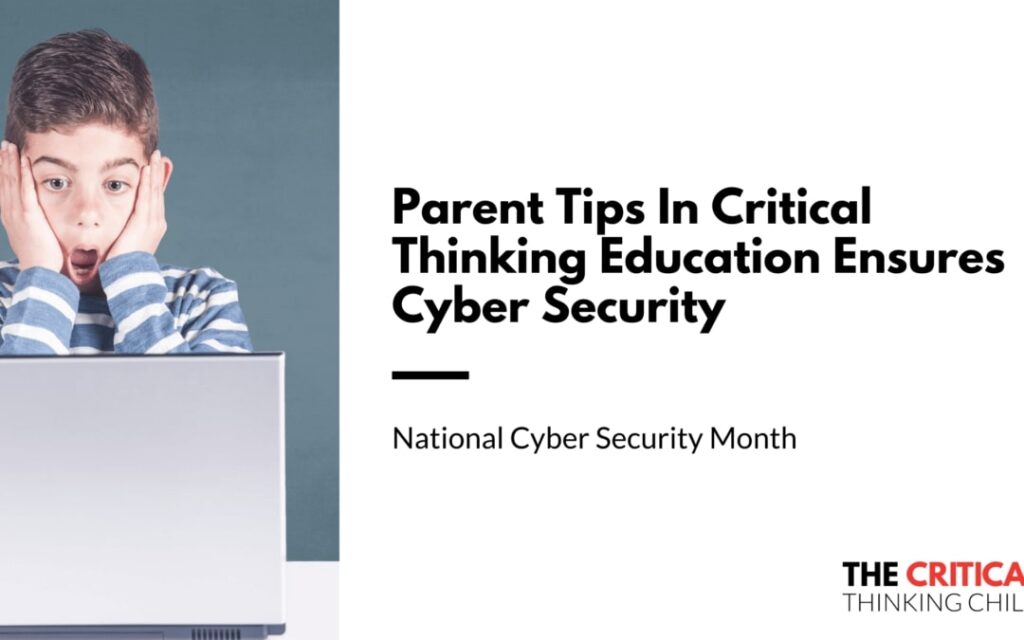Cybersecurity for Kids: Tips for Parents and Educators
In an era dominated by technology, where the internet plays an integral role in the lives of both adults and children, the need for cybersecurity education for kids has never been more critical. As digital natives, children are exposed to the vast online landscape from a young age, making it imperative for parents and educators to take proactive measures to ensure their online safety. In this blog post, we will delve into essential cybersecurity tips tailored for parents and educators, focusing on the key aspects of online safety and responsible digital citizenship.

Start Early: Building a Foundation for Cybersecurity Education
The journey toward a secure online experience begins with early education. Introduce basic cybersecurity education concepts to children, emphasizing the significance of safeguarding their digital identity. Teach them about the importance of creating strong, unique passwords and the need to keep such information private. Employ age-appropriate language and scenarios to ensure understanding.
Communication is Key: Encourage Open Dialogues About Online Activities
Establishing open communication channels is crucial in fostering a safe online environment. Encourage children to share their online experiences, concerns, and questions. By maintaining a dialogue, parents and educators can address potential issues promptly and guide children in navigating the digital landscape responsibly.
Safety Tips for Cyber Security: Emphasizing Secure Online Practices
Teaching children the basics of secure online practices is paramount. Emphasize the importance of creating strong, unique passwords for each online account. Instill the habit of logging out after each session and introduce them to the concept of two-factor authentication for enhanced security.
Educate on Privacy Settings: Control What’s Shared
Navigating privacy settings on social media platforms and online games is a crucial skill. Parents and educators should guide children in understanding the implications of sharing personal information and photos online. Reinforce the idea that not everything needs to be shared publicly.
Beware of Strangers: Online and Offline Safety
The concept of ‘stranger danger’ extends to the online world. Educate children about the risks associated with accepting friend requests or engaging in conversations with unknown individuals. Emphasize the importance of not sharing personal details, even with seemingly friendly online contacts.
Critical Thinking Skills: Evaluate Online Information
In an era of information overload, critical thinking skills are indispensable. Teach children to assess the reliability of online information by questioning the source, verifying details before sharing, and being cautious of clickbait or misleading content.
Stay Updated on Technology Trends: Keep Pace with Cyber Threats
For educators, staying informed about the latest technological trends and potential cyber threats is essential. Attend workshops, webinars, or conferences focused on cybersecurity education to enhance knowledge and effectively convey information to students. By staying updated, educators can empower the younger generation with the tools to navigate an ever-evolving digital landscape.
Promote Ethical Behavior Online: Teach Respect and Responsibility
Beyond technical skills, instilling values of respect and responsibility in the digital realm is crucial. Address the consequences of cyberbullying and stress the importance of treating others online with the same respect as in face-to-face interactions. Encourage children to report any instances of online harassment, fostering a sense of accountability for their digital actions.
Supervise Online Activities: Monitor, but Respect Privacy
While monitoring a child’s online activities is important for ensuring their safety, it is equally crucial to respect their privacy. Establish guidelines for responsible technology use, clearly communicate expectations, and ensure children understand the reasons behind these rules. Balancing supervision with respect for privacy is key to building trust and promoting responsible online behavior.
Lead by Example: Model Healthy Online Behavior
Parents and educators serve as role models for children. Demonstrate healthy online behavior by practicing good cybersecurity habits. Show children that being proactive about online safety is not only a responsibility but also a lifelong skill. By modeling the desired behavior, adults can inspire children to adopt positive online practices.
In conclusion, the digital landscape presents both opportunities and challenges for the younger generation. Equipping children with the knowledge and skills to navigate this landscape safely is a shared responsibility of parents and educators. By implementing these essential cybersecurity tips, we can empower children to become responsible and secure digital citizens, ensuring a safer online experience for all. As we invest in the cybersecurity education of today’s youth, we are not only safeguarding their digital future but also contributing to the creation of a more secure and responsible digital society.







erectile dysfunction herbal products
Just wish to say your article is surprising. The clearness in your post is just cool, and I could assume you’re an expert on this subject. Fine with your permission, allow me to grab your RSS feed to keep updated with forthcoming posts. Thanks a million, and please keep up the enjoyable work.